Graham Reid | | 5 min read
Polar Bear: Happy For You
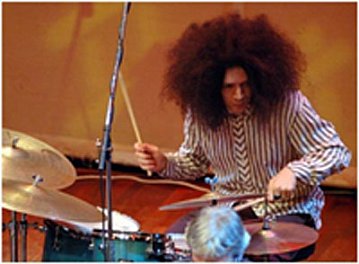
For a man who can make a big noise and very often, drummer Seb Rochford of the innovative UK jazz quartet Polar Bear (and many other side-projects) is very quietly spoken.
It is 10.30am and even fortified by a coffee he speaks slowly and at times almost inaudibly, yet throughout some dry self-effacing humour creeps in.
Rochford -- the composer for Polar Bear -- comes from a large family in Aberdeen (nine siblings) and has been making a big noise in the British music scene for the past seven years.
Outside of Polar Bear (which was nominated for a Mercury Prize for their second album Held on the Tips of Finger in 2005) he played on the first single for Pete Doherty's band Babyshambles, was the drummer on most of the David Byrne-Brian Eno album Everything That Happens Will Happen Today, through his friendship with Sean Lennon appeared with Yoko Ono as part of her band put together by Keigo "Cornelius" Oyamada, has worked with Herbie Hancock, as part of the group Basquait Strings with which he guested was nominated for a Mercury in 2007. . .
And outside of Polar Bear he and PB guitarist/electronica man Leafcutter John play as an improvising duo, he is part of Acoustic Ladyland with PB sax player Pete Wareham, and he is currently in a multi-national quartet which seems to mostly work out of Paris and which include two trombine players . . .
He won the BBC jazz award for best newcomer in 2004 and was nominated as best musician in the same awards in '06.
He's a man with not a lot to be modest about, and yet here is, seemingly grateful for the attention I am paying him on the back of Polar Bear's excellent, stylistic jigsaw fourth album Peepers.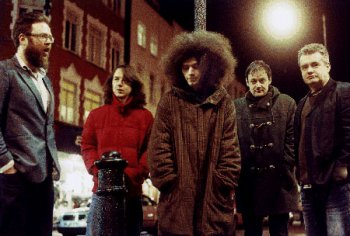
And he notes that the UK jazz community was supportive when Polar Bear -- rank outsders, althhough you never know with Mercury Prizes -- were in the running in '04 alongside Coldplay, Kaiser Chiefs, the Magic Numbers, The Go! Team, Bloc Party and others.
"The stuff we got from that was really
positive, the jazz musicians were just really happy to see jazz
musicians in there. It was quite amazing what a few minutes on TV can do, after that you'd go somewhere you'd
never played before and there would be all these people. It was really
positive for us."
Yet listening to Polar Bear albums you can understand the attraction: they are a conduit for many kinds of music and Rochford admits to having wide influences -- from Beethoven when he was young to grime, dub-step and funky house today. Polar Bear albums in a sense aren't jazz which excludes but the opposite, they provide a way in for every musical taste.
"In a sense what Polar Bear does is offer a different perception as to
what jazz is. If you are providing a variety then
people can't assume too much. I listen to a great variety of music and I
think a lot of people do today, and I was exposed to a lot of different
music growing up.
"I don't see the boundaries between different
music. For some people what we do is not 'jazz' enough and for others it's not 'experimental' enough. But I'm just trying to do what's honest to
who I am -- and have the people in the band enjoy it."
At school he picked up tuned timpani as kid but when he got to college those instruments weren't available so he turned to piano. Thelonious Monk was a seminal jazz influence.
"Beethoven had a big effect on me as composer, but certainly Monk as far jazz piano. His
compositions are so deep that people are still playing them.
"I was probably 19 or 20 when I first heard him. I was at
college and on the first day in class the piano teacher asked
everyone to write a piece of music. He listened to mine and was nice
about it and asked if I'd heard Thelonious Monk.
"I said I hadn't and he
said, 'I think you'd really like him'. At the next class he gave me three albums -- and some Duke Ellington -- to listen to. I remember putting them on and I
kind of had the feeling I loved the music . . . but I didn't completely
understand it. It was an excting thing to discover.
"That was the first swing I really got
into, there was a different kind of language and sound than I was
used to. But the melodies pulled me in and kept me going for years."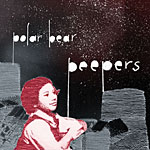
On Polar Bear's most recent album Peepers -- where the sounds refer to Waitsean cabaret-noir, marching bands, angular off-reggae, pop-rock, Ornette Coleman and John Coltrane -- there are complex compositions.
Yet surprisingly a piece like A New Morning Will Come which sounds largely improvised was scrupulouslty scored -- and Finding Our Feet is the most open for the players.
"The idea behind Finding Our Feet was it would be a
tune which could be different every time we played it. It's the one
tune where I've said to people from the first day we played it that my 'direction' was I wanted to have a tune I didn't want to direct.
"So I told John what some of the notes and chords were, and he
improvised around that. The added attraction is it's a tune where
anything could happen.
"That tune when we play it live can be
completely different. There's a nice thing at the beginning where John
has the complete freedom to take it anywhere he wants."
He pays a generous complement to Yoko Ono: "I didn't really know anything about her other than what everybody 'knows', but I really got it when I listened to her. She's quite a warm individual and very expressive."
And Brian Eno surprised him.
He had come to the Byrne-Eno album through a friend of a friend of Byrne's, but the former Talking Heads frontman liked his input on one piece and so he was invited to stay for subsequent sessions with Eno, who sounds like a kindred spirit.
"Brian's way is that he has a very strong idea of what he wants, but he's very open to trying out ideas and he gives you a lot of space -- which for me is amazing.
"He gives you
the freedom to put your ideas forward and if they are not accepted
you have the compete trust in him because he had such a strong vision.
"He's an amazing person who is curious about everything. You know, here is someone with that much success, yet he still had a young kind of spirit.
"That is an inspiring thing to see and be around."

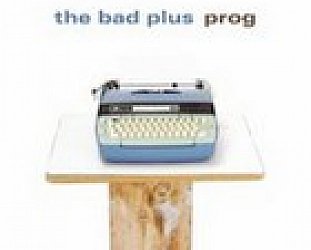

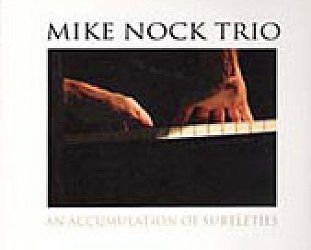

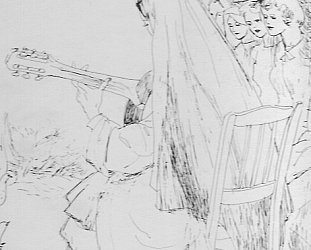

post a comment